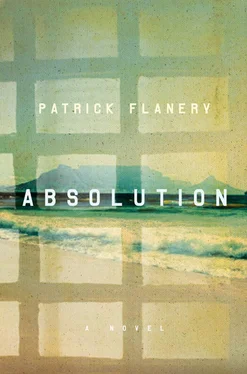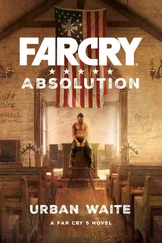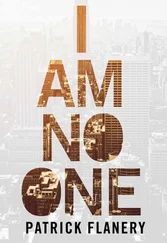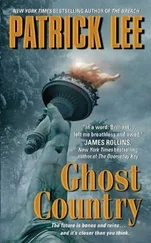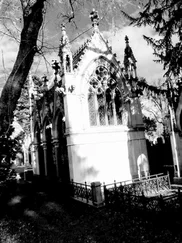The boy tried to work out how long it had been since they’d seen each other. It was definitely before his parents died, so maybe no more than seven months, but Laura had been away and she looked different, her hair was short against her head and her face was like a carving and her eyes were darker. She hadn’t come to the funeral. At the service he’d sat alone with Mrs Gush, the woman who took care of him in the days after the accident. He had waited for Laura to arrive. He’d asked Mrs Gush, Did you tell her? and the woman said they had tried to contact Laura and left word, but did not reach her directly . There were people from the university who were his father’s fellow students and professors who came past and shook his hand. And then there was his father’s mentor Professor William Wald with his dark hair and grey beard, and he came very gently over to the boy and took his hand and whispered what good people his parents were and what an extraordinary woman his mother was, and how sorry and sad he was that they were gone. The boy knew that Professor Wald was also Laura’s father, and this made the boy trust him. The man had put his hands on the boy’s head and said if the boy needed anything at all he just had to ask, and if there was no one else to look after him then something could be done about that. Professor Wald gave Mrs Gush a funny look and she gave the Professor a funny look, and then Professor Wald went away with his tall wife and the boy never saw the Professor again because Bernard took over but now Bernard was dead.
There were no grandparents since all the boy’s grandparents were dead. His father had no siblings and his mother’s sister Ellen said she couldn’t come Because it’s too far away and I can’t afford to come, sweetie, so you’ll have to forgive me and I’ll see you soon, okay? After the funeral Mrs Gush told him that although Ellen had been asked to look after him, she had refused — it would be too great a burden. Bernard was the only other choice.
The memorial was at the university because the officials thought that was what he’d want although the boy knew that his parents would have preferred everyone to gather on the beach at Camps Bay to sing, and then lift them up to the air and let them float away, but in a way it didn’t matter because their bodies had already gone into the air. No remains recovered , the report said on its funny paper. He could tell that the flowers were leftovers from some other function like a banquet. They looked too happy with their big scarlet pink faces, and instead of live music there was a tape recording of some low and crying organ and the sound wobbled and it was the kind of song his parents would have called music to dig death by . And throughout the music and the man at the podium talking and talking and talking and raising up his eyes to the ceiling the boy kept turning around to look for Laura who was the only person in the world at that moment he wanted to see. But she never came and he only saw her again that night at the truck when she pointed the gun at his face.
Clare sends me away for a week, claiming other responsibilities. Some days while Greg goes to work I stay at his house, lying by the pool and listening to the recordings of my interviews. Other days I go to his gallery on Loop Street, where I sit in one of the vacant offices and work on the materials I’ve gathered, or I explore the city over long lunch breaks while Greg deals with his artists. One day I go to buy a car, agreeing with Sarah over the phone that it makes no sense to carry on renting until she arrives in December. A car is a car, she says, one is as good as another, and she trusts my judgement.
On Wednesday I walk all the way up Long Street until it runs into Kloof. I drop off some dry cleaning and go to a movie in the middle of the afternoon. As I’m coming out of the cinema and waiting to cross the street, a young man approaches me. He’s polite, well dressed, but his clothes are dirty and he smells.
‘Excuse me sir, I’m sorry to bother you. My name is Derek,’ he says. Derek isn’t like the woman we saw the other evening. There’s no trace of privilege in his accent, and little education.
‘I’m sorry I don’t have any change,’ I say.
‘Thank you, sir.’ As he begins to walk away I call out to stop him.
‘Listen, I’m not going to give you any money, but I’ll buy you some food. What do you want?’
‘Some bread and some sugar and some coffee,’ he says. ‘That’s what we need most in the shelter. Bread and some sugar and some coffee.’ He says this like he’s said it before. His body falls down around itself. His eyes are clear. He hasn’t been drinking. He looks listless with hunger.
I tell him to wait and I go into the KwikSpar up the street. I choose a loaf of vitamin-enriched brown bread, half a kilo of sugar, and then look for the coffee. There’s no coffee for under 50 rand, so I decide to skip it. The bread and sugar come to 18 rand, a little over two dollars at the current exchange rate. Less than I’d pay for a cappuccino. I know that I have to stop comparing, that soon dollars will mean nothing to me, that I will measure my life once again in the currency of my childhood.
Derek has come to wait outside the shop. I give him the loaf of bread and sugar. He looks disappointed with the bread, as though I’ve chosen the wrong kind. I tell him I didn’t have enough money for the coffee, which is true in a way, since I wouldn’t have had enough cash to pay for it.
‘Thank you sir,’ he says, and walks away.
On Thursday, as I’m going to fetch my dry cleaning, I see Derek again: even from the short distance across the street, he looks almost prosperous, or, if not prosperous, then not on the skids. And then he pushes up his sleeves, puts down the plastic bags he’s carrying, and begins to search through a trashcan.
*
Greg called out to me a moment ago to say he was setting the alarm, which means the kitchen, dining room, and lounge are all out of bounds until morning. I have nearly a wing of the ground floor to myself, including my bedroom, its adjoining bathroom, and Greg’s study — a room that would have been intended for a live-in maid when the house was built. There aren’t any outer doors in this section of the house and motion-sensing beams operate all along the perimeter fence, at the doors, and at each exterior corner of the building. Greg and Dylan sleep marooned on the upper floor, and the stairwell off the kitchen, which ends at the back door, is also alarmed. The dogs stay upstairs with them.
It’s easy to become paranoid about noises. The house settling or weight on a floorboard? Wind in the chimney or a window opening? I know that no one could enter the house now without triggering the alarm, unless they were more than petty burglars. They’d need whatever technology is necessary to disarm the system without any of us being aware of it. Greg isn’t anyone of real importance, and I’m definitely not, so I know that we have nothing to fear except petty burglars, and even then the fear is more about confrontation than loss of property. Confrontation, pain, and death.
I’m nearly asleep when the electronic howl pulls me up, eyes throbbing in time to the siren. I haven’t felt like this since I was a child. My heart’s in my tongue, every part of me vibrates with fear. The alarm echoes down the corridor and I slip out of bed to the door, crack it open, but can see only darkness. I sprint back across the room to the windows and edge the shutters open. The garden is dim under its night lights and my breath comes out quick and shallow. The dogs are silent. And then the alarm stops all at once, pulled into a vacuum of silence, and Greg calls from the end of the corridor. He can’t see anything outside. It must have been an animal, or a power surge. The dogs aren’t concerned. The alarm company phones to be sure that everything’s okay, and Greg gives them the password that indicates it is, that we aren’t being held at gunpoint — there’s a different password for that — and we all go back to bed.
Читать дальше
